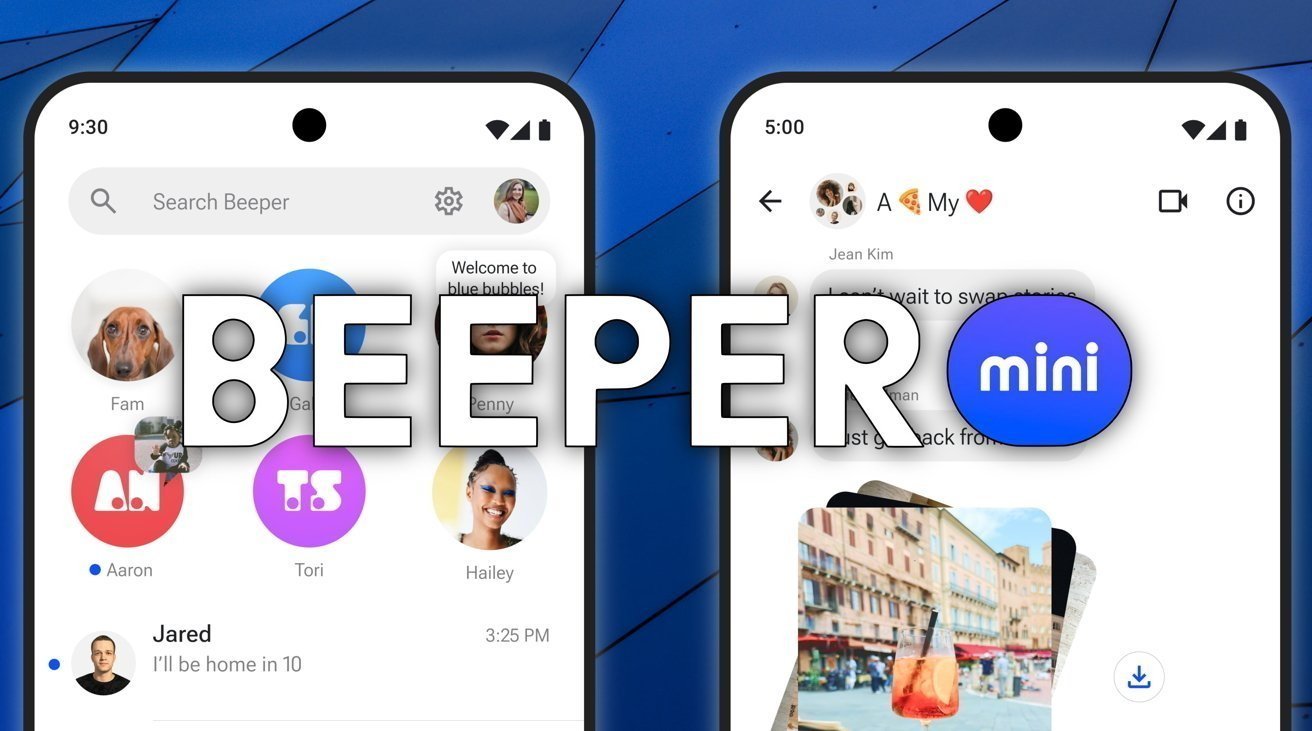Beeper Mini users find Macs banned from iMessage network
Beeper mini users who used their hardware to register their app with Apple's iMessage network may find their Mac blocked from the service instead, in what could be retaliation against the use of the controversial messaging app.

Beeper Mini
Following a cat-and-mouse race between Beeper and Apple to get around Apple's security and allow Android device users to post to the iMessage network, it seems that some are finding out that they've got bigger problems with their own overall access to iMessage.
In December, one of the last fixes for access offered by Beeper was a method of using a real Mac to connect to iMessage, and use that registration with Beeper Cloud and Beeper mini. The logic worked, with the genuine registration data sourced from the user's own hardware, or a Mac they had access to, allowing access.
However, not all is rosy for users, if the Beeper subreddit is to be believed. A number of posts claim that Apple is banning Macs from being able to make iMessage posts at all.
It appears that Apple may be detecting the instances of registrations being used by Beeper, and then striking the registration's access from iMessage. The problem is that doing so also blocks the legitimate original source of the registration too, as well as any other devices that use the same registration data.
At the time of the method's introduction, Beeper said that testing revealed up to 20 users could "safely" use the same registration data.
While affected users can only contact Apple support in a bid to restore access, Beeper doesn't seem to be continuing the fight with Apple. In a blog post from December 21, the company admits it "can't win a cat-and-mouse game with the largest company on earth."
With no plans at the time of writing to respond if Beeper's system was knocked offline, the blog adds that the company would return to the long-term goal of "building the best chat app on earth" in the new year.
BGR also reports that Beeper Mini has been removed from the Google Play Store, though seemingly momentarily. Beeper is said to be focusing on adding other chat networks to the app, and preparing for a relaunch.
Read on AppleInsider

Comments
... to be fair it is Apple's sandbox to do what they please ...
... how is this a computer for the rest of us, if we are referencing 'core values' ...? Where has all the aspirational rhetoric faded to anyway ...?
My macOS haven't worked properly (esp sync) since High Sierra ...
I am reminded of the book titled 'Too much and never enough', although it is technically the corporate job description...
It's enforceable try to explain to a judge in court, how your Mac registration number ended up on 20 different (registrations) accounts from around the world. And the EULA in your possession says you can't do that. Also note if/when you tell the judge you don't have/own that Mac computer then you are doubly F__ked.....In short you have no leg to stand on. I think Apple can sleep at night.
That being said, everyone knows why Apple is doing this and its implications on the broader market (hint- it's neither about privacy nor security) the question is whether it is legal. If what happened to AOL messenger is any indication, it is not.
This is exactly the same as Nintendo not supporting homebrew, or banning people/consoles from using their services. The console is still functional to play physical games, but they can’t buy/download a digital game or play their friends online, because they breached their EULA.
Contracts of Adhesion are when one party presents the document with specific terms that the second party had no opportunity to negotiate, such as a lease agreement, insurance policy, or mortgage agreement. Or in this case, a EULA.
But the Apple EULA is a "click-wrap" type of adhesion contract (you click on "I Agree"), and these are usually enforceable.
Broadly speaking, the terms in question would have to be unreasonable and unconscionable to be tossed. When you say they get tossed "all the time", true, but it's probably more accurate to say once in a while.